Social Good Award
Thomas Mackisack 6 SPOT CHECK
-
Tauira / Student
Thomas Mackisack -
Kaitautoko / Contributors
3D Design Workshop Technicians, Daniel Harmsworth, Dr Amanda Oakley, Dr Grant Bellaney -
Kaiako / Lecturers
Lyn Garrett, Rodney Adank, Yueyon Song
-
School
Massey University College of Creative Arts
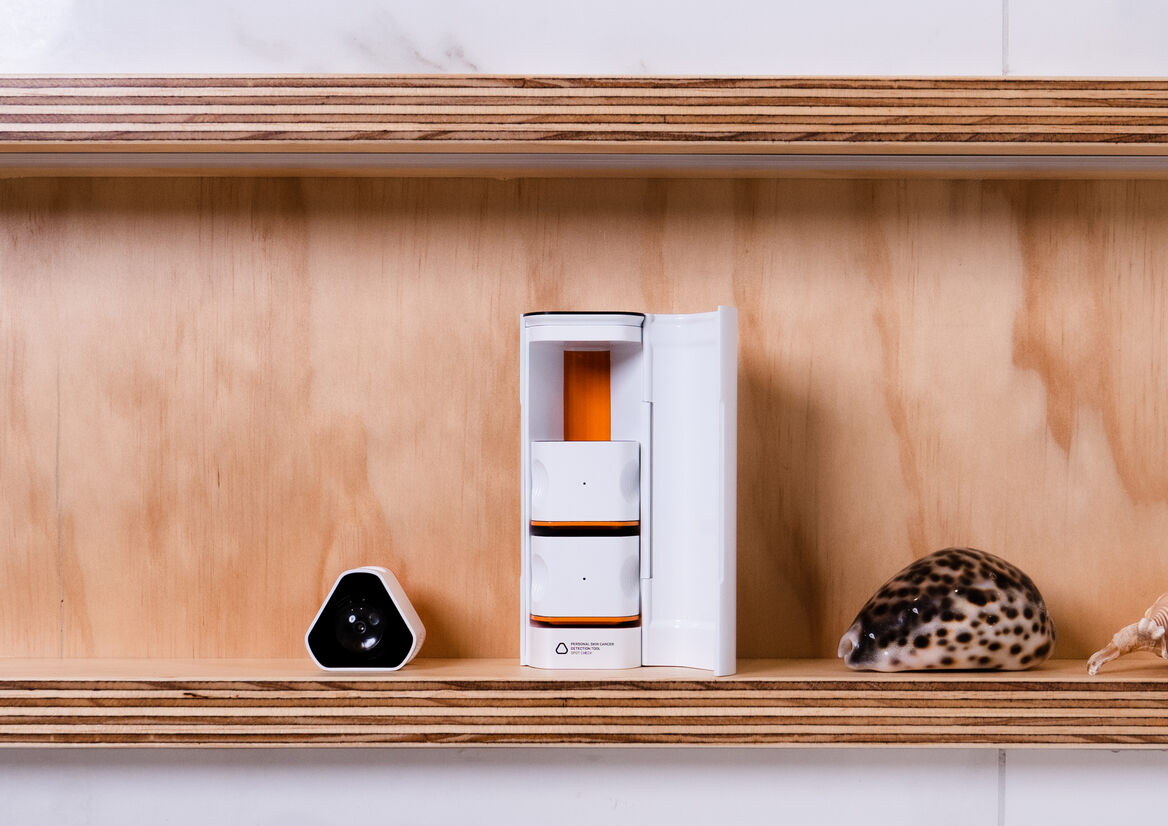
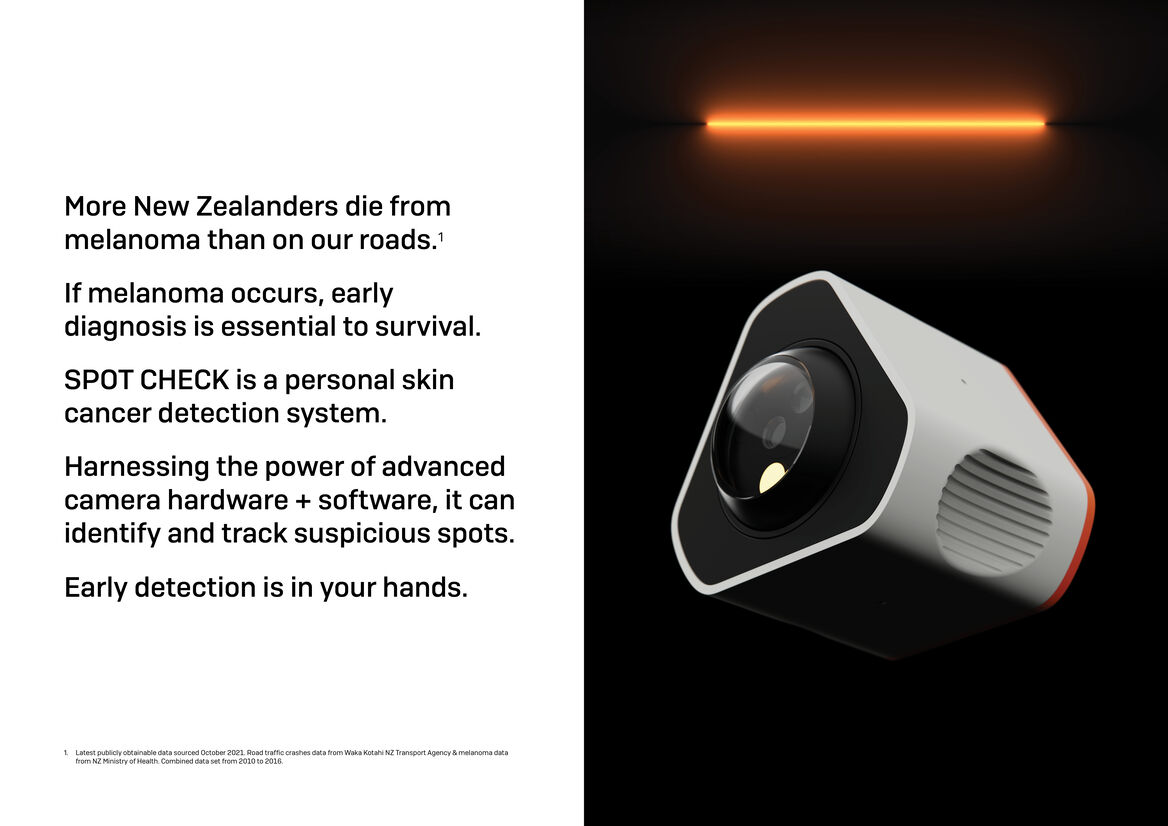
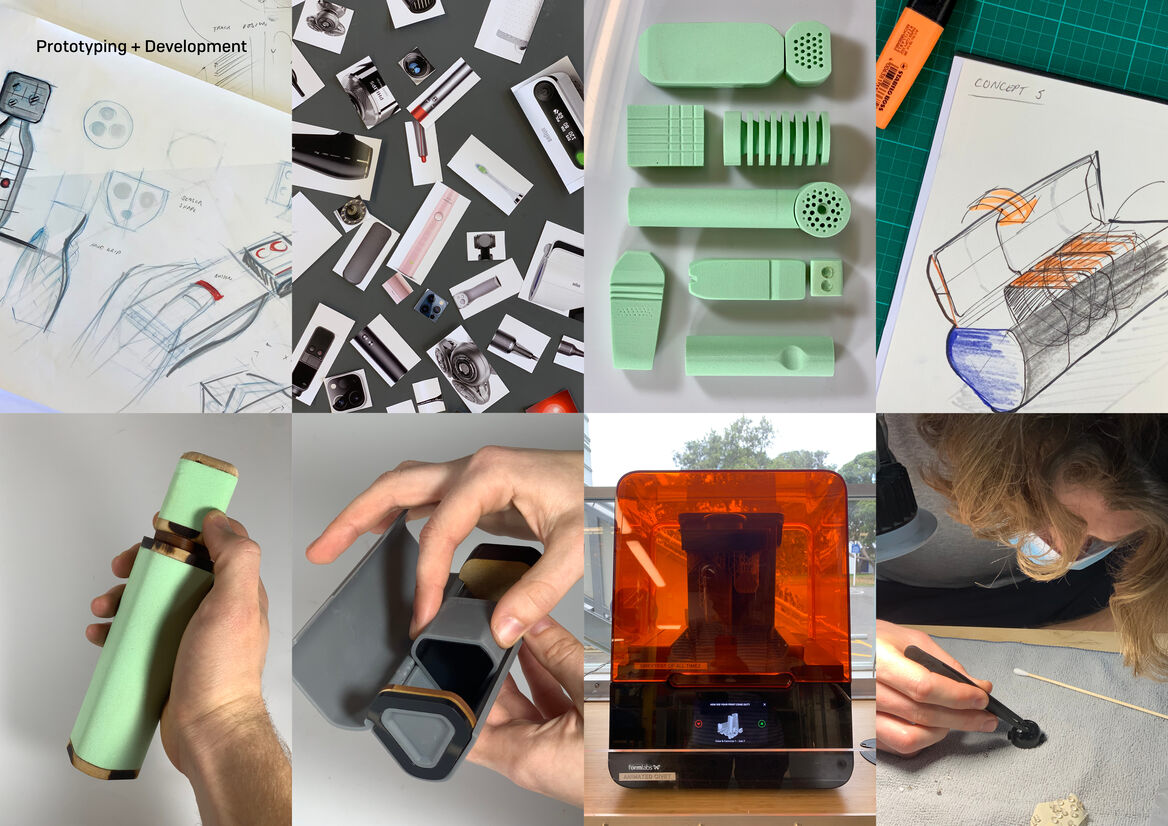
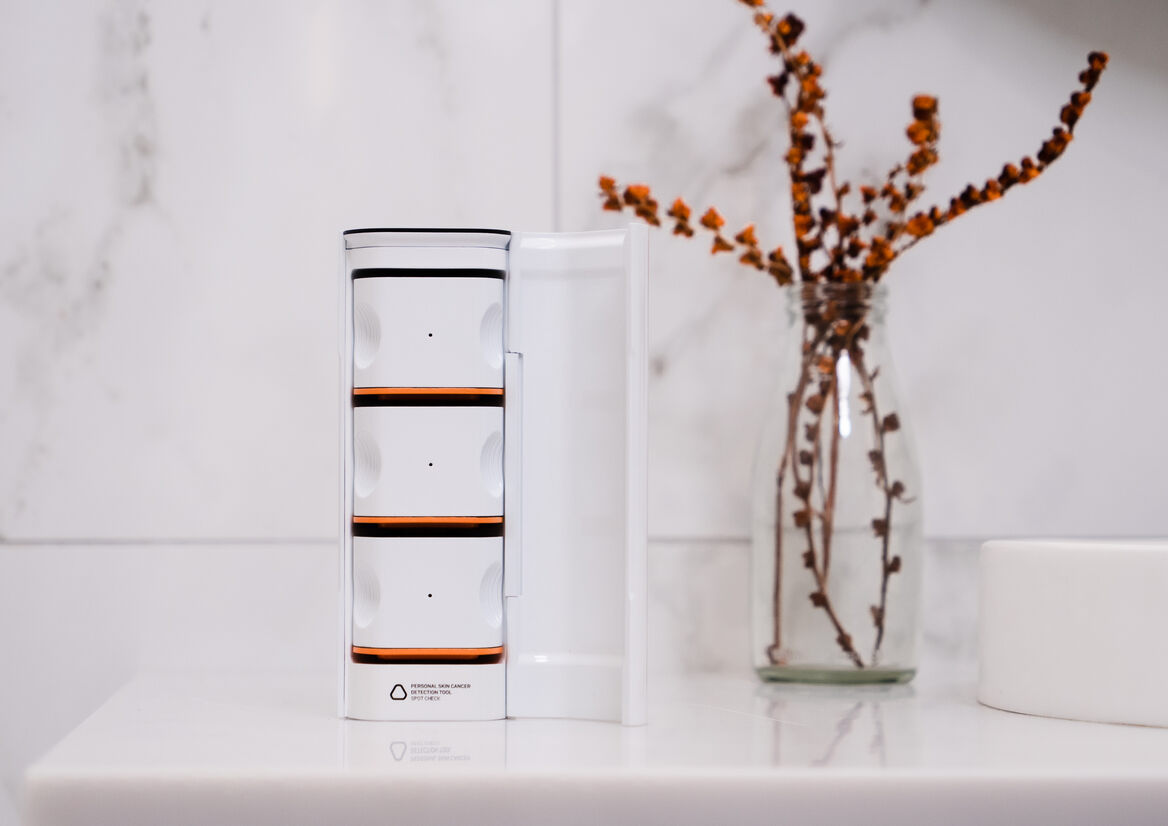
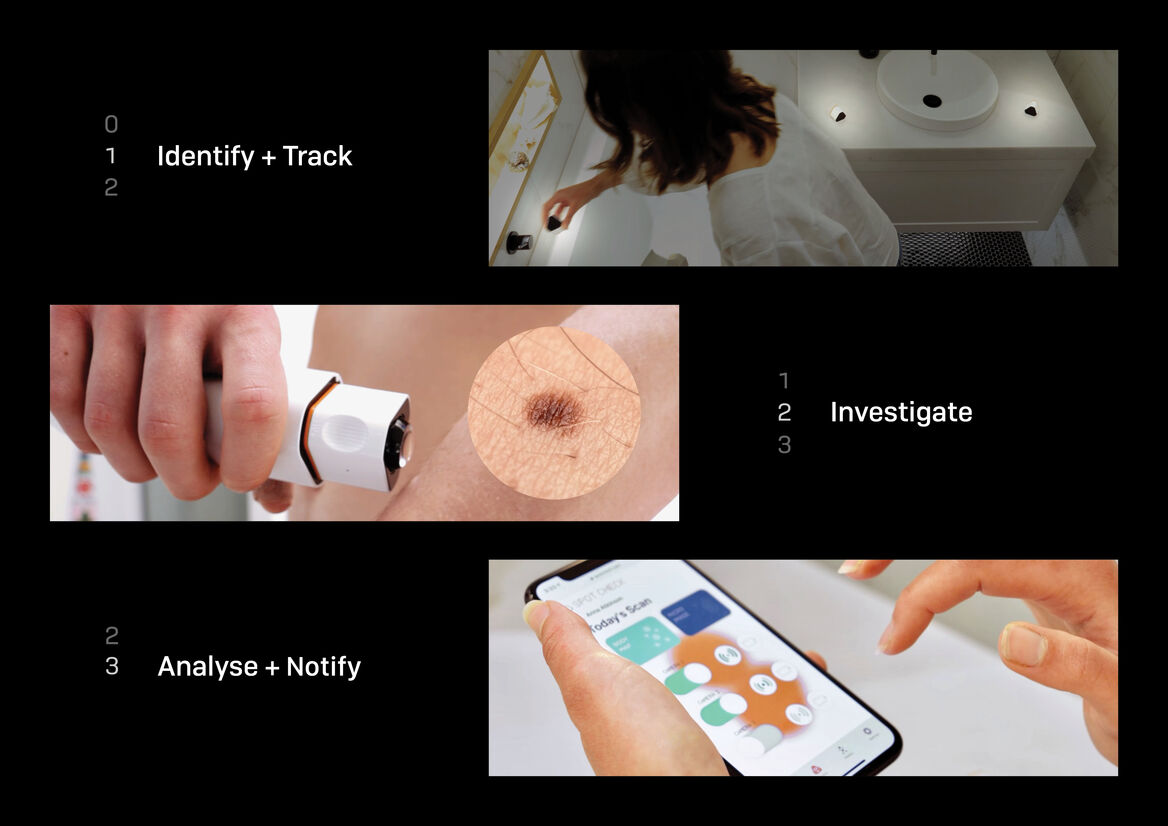
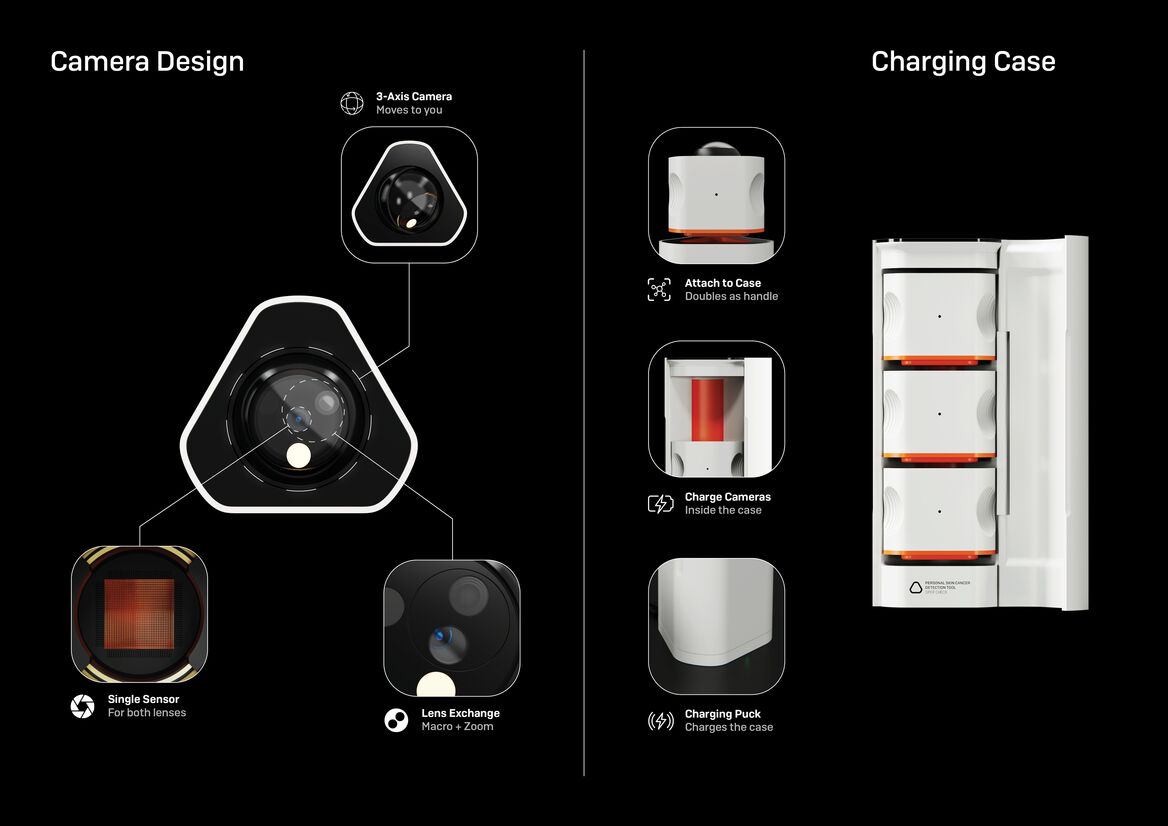
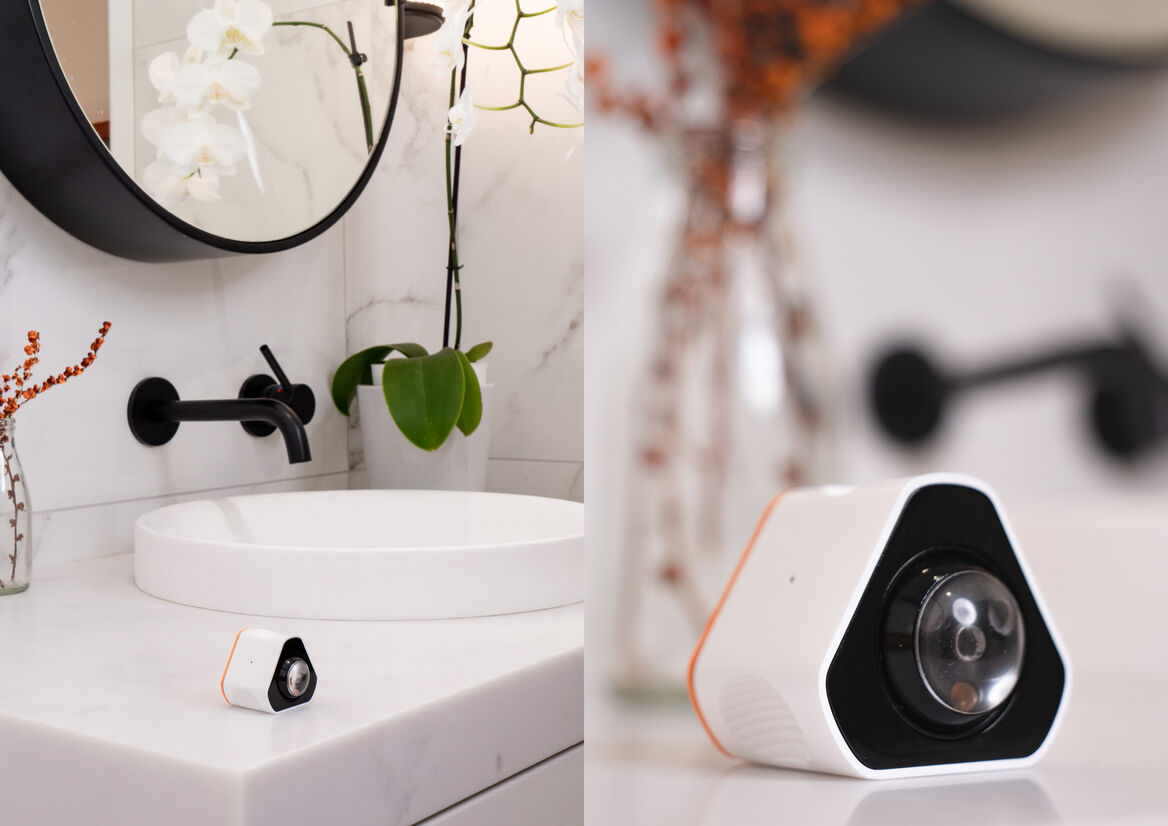
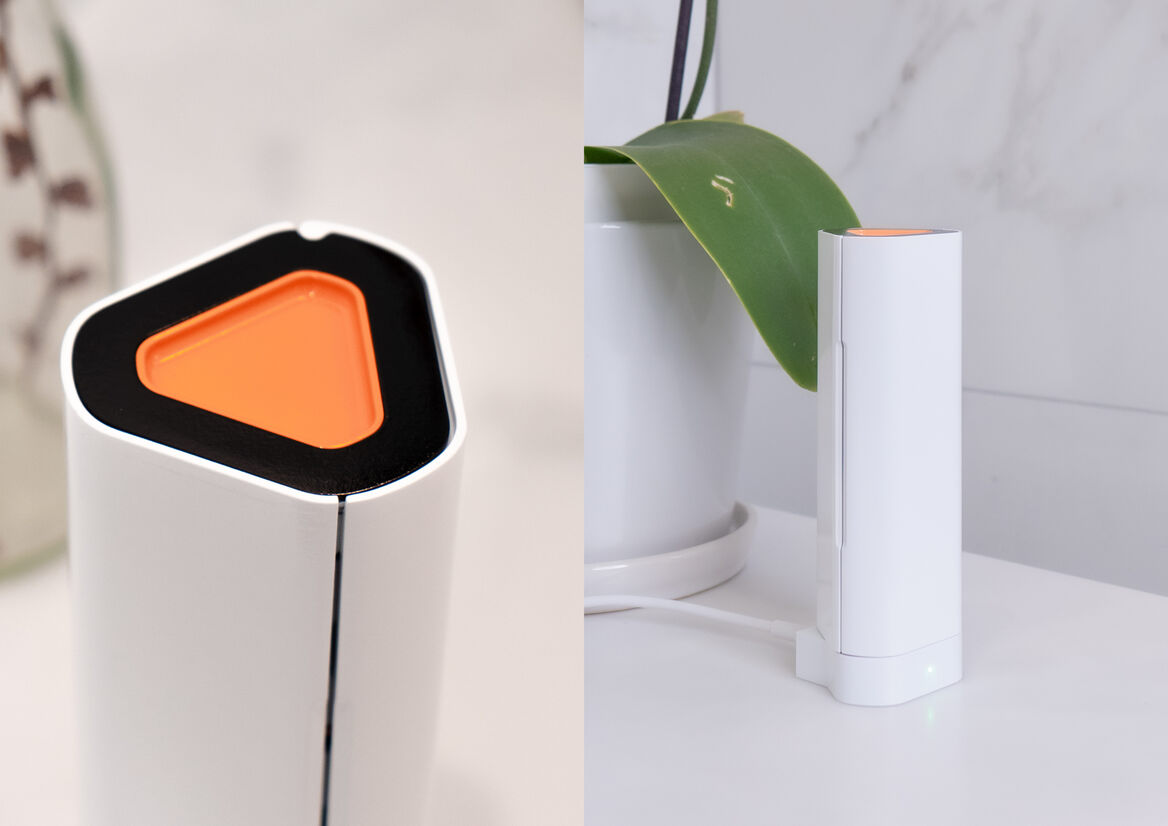
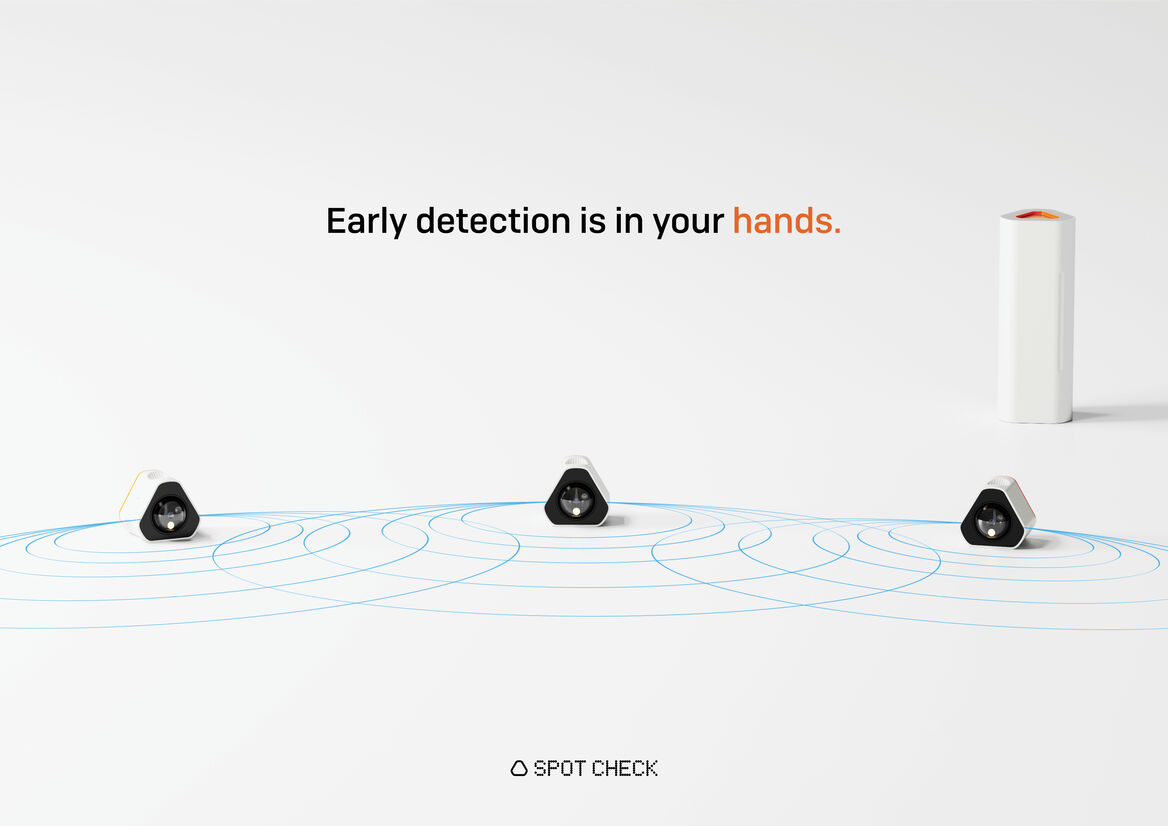
Description:
More New Zealanders die from melanoma than on our roads. If melanoma occurs, early diagnosis is essential to survival. SPOT CHECK is a personal skin cancer detection system. Combining the power of advanced camera hardware & artificial intelligence, it can identify and track suspicious spots– catching melanoma before it’s too late.
Designing a personal skin cancer detection system presented multiple challenges. Firstly, no existing product combined total body photography with a digital dermatoscope – current methods of personal detection are simple self-checking processes, requiring users to physically monitor changes to their own skin. Secondly– designing a sophisticated medical product for personal use, with seamless integration into daily life. And most importantly, how the system will detect skin cancer. Some existing products have proven the viability of utilising artificial intelligence and photography to detect melanoma. However, they produce inaccurate results, relying on the user to accurately identify and photograph suspicious spots.
The result was SPOT CHECK– comprised of three cameras, a charging case and companion app. The system begins with full-body scanning– streaming the three cameras simultaneously to surveil and track suspicious spots. If the AI deems an area suspicious, it will notify users to perform micro-imaging. Utilising a single camera, the module magnetically attaches to the case, doubling as a handle. Directed by the voice assistant and guided by the remaining modules, the camera can accurately target the suspicious area. Designed to detect, not diagnose– the companion app will refer users and provide booking if professional diagnosis is required.
To make SPOT CHECK possible, the camera modules have a number of original designs and world first features. Each module is fitted with an identical camera system. Featuring a lens exchange design, the camera modules seamlessly switch between the telephoto lens for full-body scanning, and macro lens for micro-imaging. This function, enables a much more efficient design, requiring just a single high-resolution sensor. The unique dome design allows the camera to move to you– featuring a 3-axis ball camera, the module can identify users in space, intelligently locating and orienting the camera. This benefits the user by requiring them to simply place the cameras towards them, rather than expertly aligning them. When you’re finished, it simply roles back and hides away. The compact charging case was intentionally designed to fit in your bag on the go, while visually enriching the spaces it inhibits– the choice of neutral tones with sunset orange highlights guide users between the touch-points. The cameras charge inside the case, while the case can be charged using the included puck.
Commercially, SPOT CHECK is proposed as a subscription-based model, due to the ongoing service of cloud-based AI analysis. This would provide an easy entry for individuals, groups, companies and governments to then subsidise the product for users. With New Zealand holding the title for the world’s highest incidence rate, implementing this product could have lifesaving impacts on not only New Zealand, but the world– putting early detection in peoples hands.
Judge's comments:
The craft and thinking was exceptional at every step from prototype to finished examples. A simple solution to a complicated medical problem that could change lives.